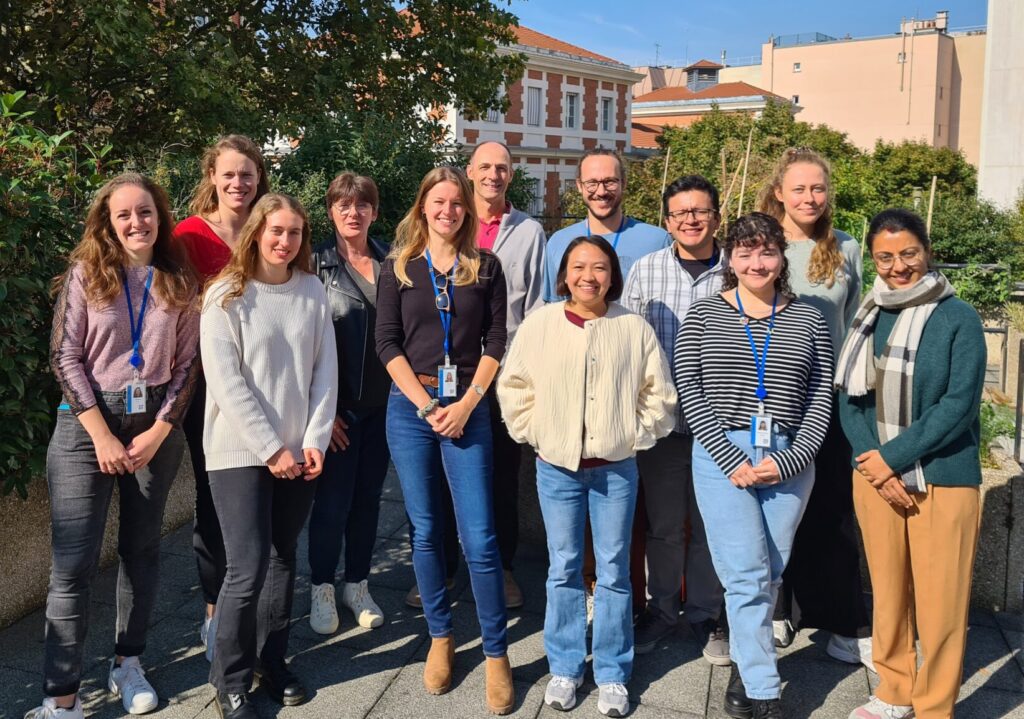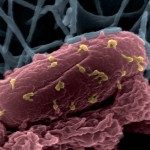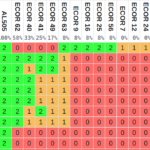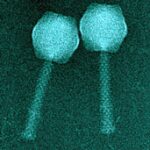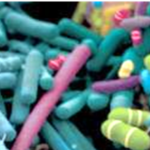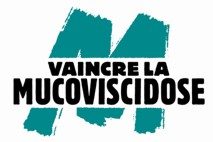Since their discovery in the early twentieth century, researchers have exploited bacteriophages (viruses that infect only bacteria). First, bacteriophages have been used to fight against human bacterial infections, next, they were used as models for studying molecular mechanisms of cells (replication, transcription, regulation …) and more recently they have become valuable tools in biotechnology, including genome editing that is derived the studies of CRSIPRs-Cas systems of defense against bacteriophages. 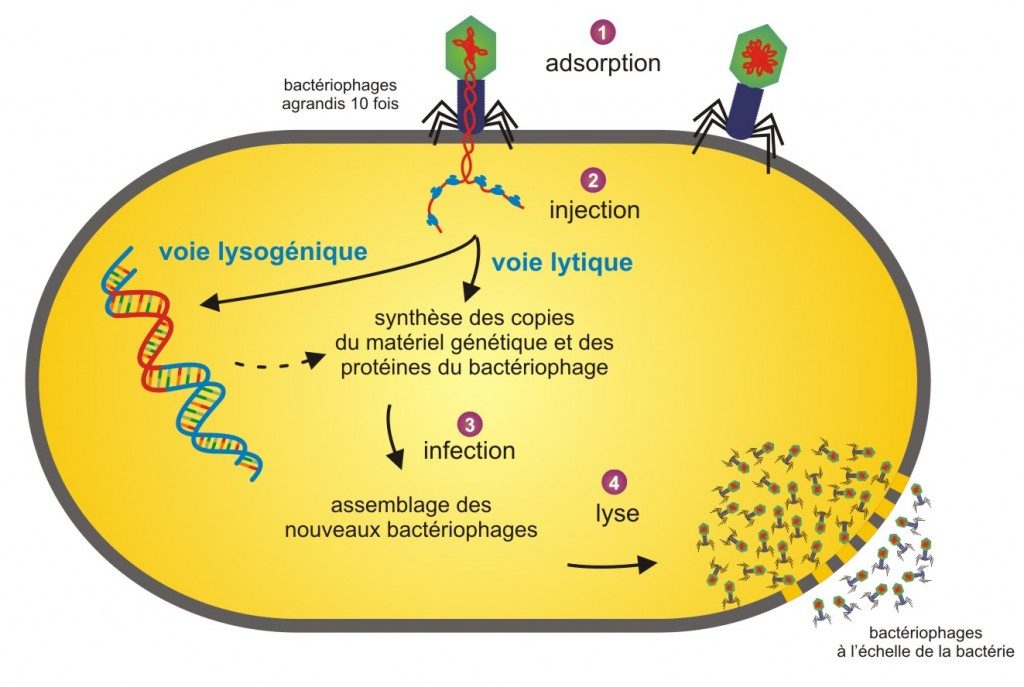
Second, we study the parameters required to develop the therapeutic use of bacteriophage (phage therapy). This medical treatment, originally developed in France a century ago, is now back on the headlines to fight against infections caused by antibiotics resistant bacteria. Our studies focus specifically on the treatment of pulmonary infections, adressing the safety, the pharmacokinetics and the efficacy of bacteriophages.
Third, we are seeking to identify the function of bacteriophage genes that have no homologies to any other genes outside closely related bacteriophages. We are paticularly interested to uncover bacterial processes that are targeted by these bacteriophage proteins.
Finally, we have built an original web-based tool to facilitate the analysis of host range data. The Viral Host Range database contains thousands of interactions allowing the rapid identification of which bacteriophage infects which bacteria and vice et versa. It is freely accessible and open to the community to incorporate novel data.
The BBH team (October 2025)
To watch a video introducing phage therapy, click here Our team is part of the network Phages.fr and of the international society for viruses of microorganims (www.isvm.org). L. Debarbieux is a co-founder of the association P.H.A.G.E. (www.phagegroupeurope.eu).



